Nicolas Winding Refn Remembers ‘Only God Forgives’ 10 Years Later: ‘Art Is an Act of Violence’

Nicolas Winding Refn is an icon of neon noir, Ryan Gosling quiet man fan fictions, and bisexual lighting, whether the auteur knows it or not.
The “Only God Forgives” writer-director revisits the legacy of the controversial 2013 film in honor of its 10-year anniversary. From laughing about being booed at 2013 Cannes, where “Only God Forgives” competed for the Palme d’Or, to defending Gosling only having 17 lines of dialogue onscreen, Refn seemingly has discussed every aspect of the hotly debated film for years. Now, though, “Only God Forgives” has slithered from being a Cannes bomb to a beloved classic by some, a beacon of beautiful cinematography, and a pivotal showcase for Gosling — and renegade filmmaker Refn isn’t surprised at all.
More from IndieWire
With 'The Flash' Leading VOD, Warner Bros. Discovery Gets Another #1 Film
Christopher Nolan Movies, Ranked from 'The Dark Knight' and 'Tenet' to 'Dunkirk' and 'Oppenheimer'
“Drive” and “Barbie” actor Gosling portrays Julian, a drug smuggler running in the criminal underworld of Bangkok, whose mother (Kristin Scott Thomas) forces him to avenge his brother Billy’s (Tom Burke) death by police after he assaulted an underage prostitute. Sure, Julian and his mother might have an incestuous relationship, but “Only God Forgives” is more occupied with the morality of emotionless killings onscreen. The seductive film was described by Refn as an “old school acid trip” founded on the shared primitivity of sex and violence.
“[Art is] meant to violate you,” Refn told IndieWire. “The point is just to feel something, especially nowadays where everything is becoming harder and harder to feel. I’m always more interested in the extremes rather than what’s in the middle.”
Below, Refn shares why he always returns to the lushness of neon and how the legacy of “Only God Forgives” is the perfect example of a changing Hollywood landscape.
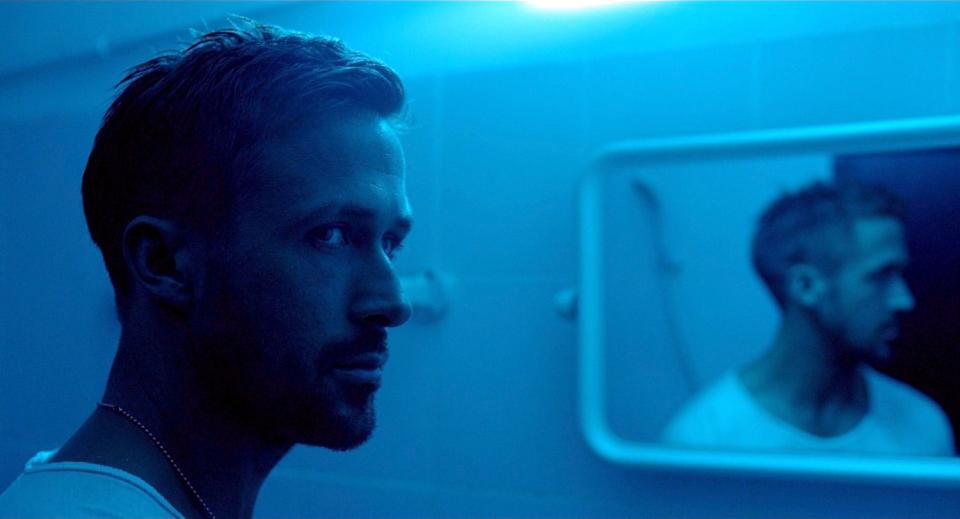
IndieWire: It must be a flashback to be talking about “Only God Forgives” 10 years later. I know at the time you described the film as being a Western set in the Far East with a cowboy lead hero. That description can be applied to a lot of your projects. Do you consider “Only God Forgives” to be the epitome of your filmmaking style?
Nicolas Winding Refn: Oh God, I don’t really look at it all. Well, I don’t know how interesting it is for me to categorize my own films. I just enjoy making what I want to make and not. I don’t think so much about it. It’s a bit like painting a picture, you know? It’s like a black canvas and then suddenly a stray of light hits it and then you kind of move from there. I’m sure there’s a strong connective tissue with a lot of the other elements that are kind of using the iconography of the American Western in a way.
You previously called “Only God Forgives” a “fairytale” that was connected to “Drive.” It’s a violent fantasy but it is beautiful as well. Where do you have to go personally to write that fantastical world in a heightened reality?
Not everything has to make sense in a way. Life is so strange, so why should art be so realistic sometimes? I started making films trying to capture authenticity, to kind of redesign it when I did these films back in Denmark. But at a certain point, I got to that conclusion that it was an impossible task. And because, you know, with the emergence of social media and abilities to communicate digitally, authenticity became manufactured in certain ways that are very manipulative. And so I became more interested in unreality.
I think that probably started with my film “Bronson.” I really enjoyed that fetishization of myself or what I like to do, and it just became a natural evolution. You just stare at a blank page or at a tree or out of a window and then you just let things come to you, and you begin to make sense of it afterwards. It’s very seductive and it’s a very enjoyable process.
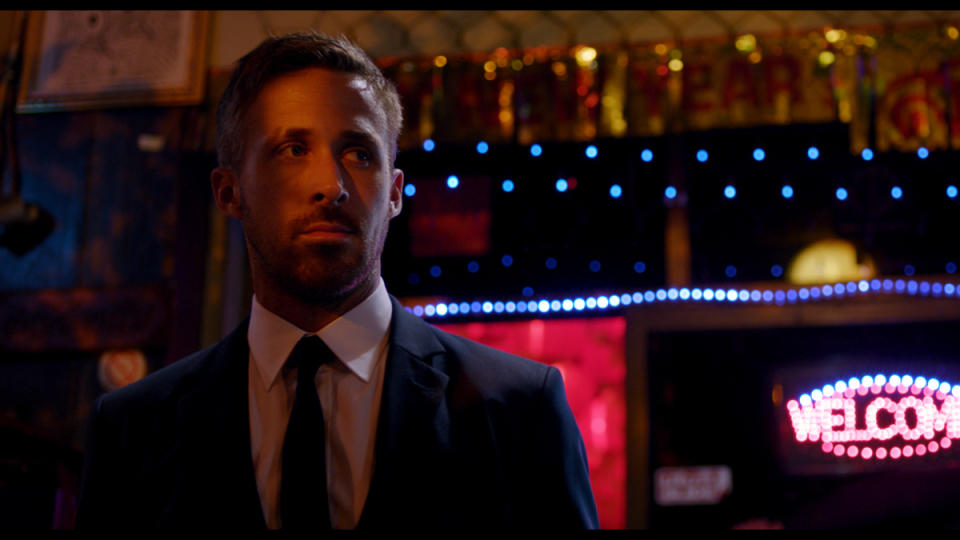
Speaking of seduction, I know that your films in this era, specifically “Drive” and “Only God Forgives,” are credited with creating this neon-noir category and bringing a retro-inspired aesthetic to modern films. People talk about the “bisexual lighting” Internet trend…
Bisexual lighting? I’ve never heard of that. That’s fascinating.
It’s a millennial term that is essentially neon reds and blues and the overlapping of that. It’s referred to as bisexual lighting because of the duality of merging gendered colors, which makes everyone look good onscreen, basically. How did you craft that aesthetic, and when you were writing, did you already envision the texture of the film?
Well, I set the film in Thailand because my family and I had been visiting Thailand for a number of years. It’s a great place to vacation, and we would always spend time in Bangkok. Usually what happens is you fly to Bangkok and you kind of move on to the islands and have wonderful times, but I was very fascinated by Bangkok. I just, in a way, decided that I wanted to make a movie there. And so a lot of that area of the world, it has a usage of that neon sensibility, so it was very easy to connect to. It’s very removed from anything Scandinavian. We don’t have a lot of neon in Scandinavia, unfortunately. But I’ve always been attracted to, I guess, the bisexuality of neon and because it’s like a collision between analog and digital, and yet it has this heightened sense of flair. So it looks artificial, but it’s actually an almost analog sensibility and it just naturally, I guess, attracted my senses. There is something very interesting about using a lighting texture to define what you do, especially with moving images.
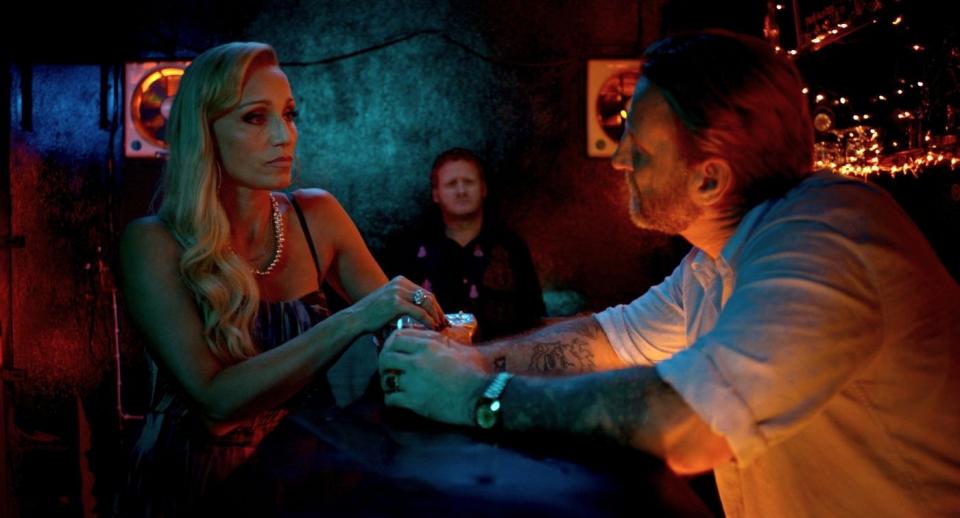
You have previously addressed the intimate tie between sexuality and violence onscreen. Some filmmakers have received flak for making similar references, namely Quentin Tarantino. But you had framed it as kind of being the crux of the emotional impact of both types of scenes. How do you balance the sex of violence and the violence of sex, especially in a film like “Only God Forgives” where sexuality and sex work unleash a series of killings?
Oh, god. Well, I mean, art is an act of violence in a way, you know? It’s meant to violate you and to inspire you and to touch you and to enrage you and also make you joyful and happy and cry and sad. I mean, emotions can be violent. It’s when we are touched by something or we go through an experience, and I think that’s really the whole nature of creativity is to inflict emotional experiences as it folds in front of you. If you go to a gallery or music, literature, poetry, it’s very much the same DNA. Sex and violence is as primitive as we can become, and its elements, we all have within us, and most of our driving force comes from that, as well as empathy and the desire to be connected. But there is something in terms of creativity: if you really journey inwards, they are very primal desires and needs that don’t really belong in normal society or functioning society, but they flourish in creativity as a kind of catharsis. The combining of the two is obviously an atomic bomb but there is great neon in it. [laughs] There’s great opportunities creatively and how to reflect it, and of course everything you do comes with a sense of responsibility. We’re all responsible for what we do, we all have an opportunity and I think where art or at least in my opinion, creativity is really just there to not just to entertain you as an entertainer, but it is to give you an experience. Whether you like it or not, it’s almost not the point. The point is just to feel something, especially nowadays where everything is becoming harder and harder to feel. I’m always more interested in the extremes rather than what’s in the middle, which in a way goes back to neon.
Exactly. And I know that the film was booed at Cannes upon its premiere, but that in itself is eliciting an extreme reaction. Do you think the Cannes audience has changed in the last decade since “Only God Forgives” premiered there?
I mean, Cannes is a great place to expose yourself, and it has a great history of many, let’s just say, happening moments, and some of my friends have had similar experiences at Cannes, and there is something about that place that’s just so magnificent, similar to like the Venice Film Festival. But obviously, I’m a child of Cannes. It is where I belong.
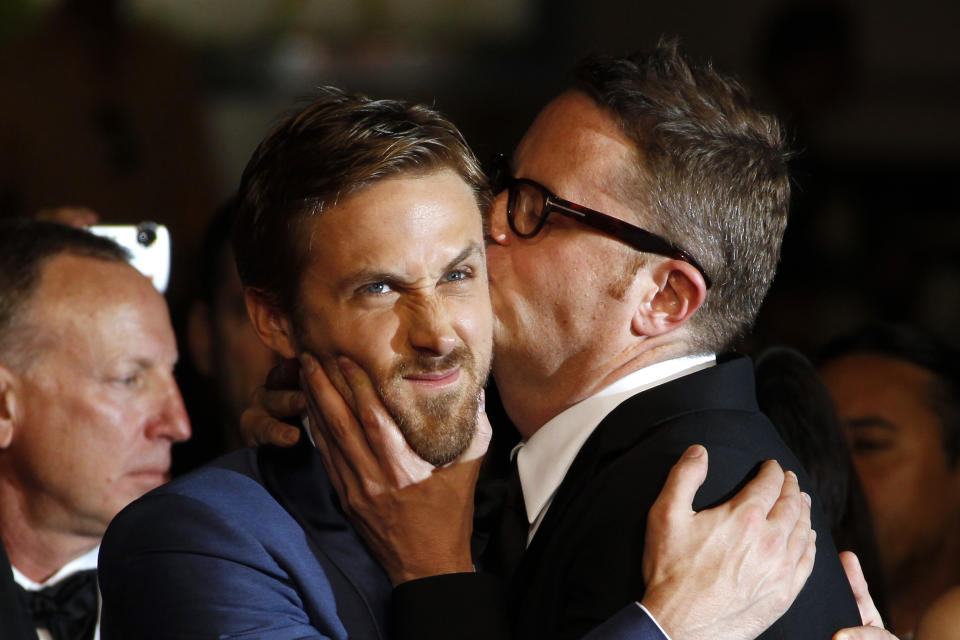
I remember talking to some people at the festival afterward where there was this almost idea of there was a new Cannes and an old Cannes and the old Cannes was all screaming and shouting and the new Cannes was all cheering. But it was also at a time when, at least for me, I really felt the writing on the wall of how cinema was going to really change because very quickly after that, streaming became an emerging dominance and that would change everything. Just like the idea of having an opinion became a democratic term and not something for a certain group; it became everyone can really just speak their mind and are validated for that. The film came at a time when the whole industry was beginning to be to implode in a way. And obviously, the repercussions of that we’re also seeing now in the U.S. [with the ongoing WGA and SAG-AFTRA strikes]…
I think I enjoyed the flow of everyone’s reactions because as much as there was booing there was also applauding and I think that if you ever were to define success — which is so difficult nowadays because what does that actually really mean? — but I certainly believe success is when one can hate something and the other one can love it and they’re standing right next to each other. Isn’t that what it’s all about?
That’s the beauty of individuality that we are different but that at the same time, we are all one. We can never forget our singularity, especially when corporate America is more and more just homogenizing everything. And so in a way, humanity needs these experiences to two for your life. I think it’s a healthy dose of adrenaline and I’m happy to be contributing that to mankind.
Do you think one of the core criticisms was the coded incest, or what do you think was so offensive to audiences?
I don’t know what people are so outraged about. There’s millions and millions of people who die of hunger and are living in poverty or situations that we can never imagine. As my daughter said to me, “Dad, it’s only a movie, lighten up.” I don’t know why people react the way they do. But I’m sure they’re still talking about it. The pleasure is all mine.
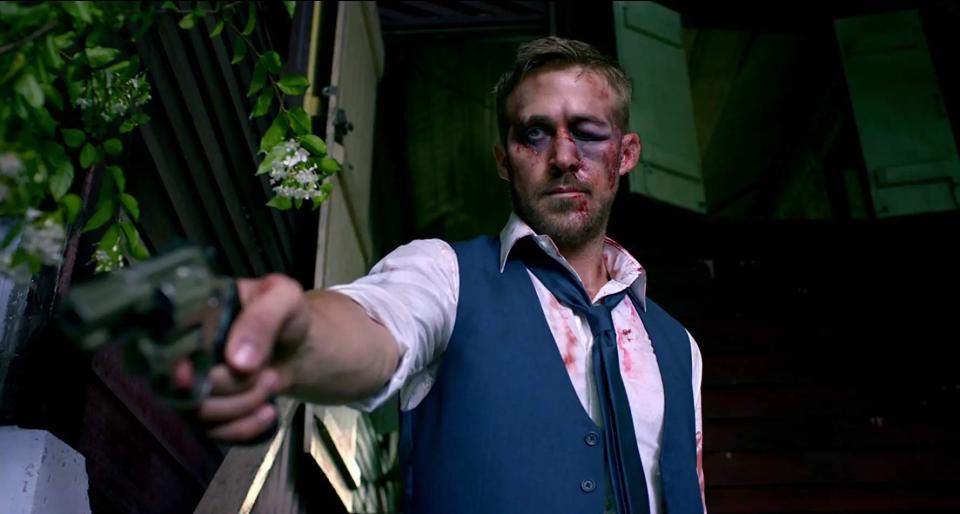
But I think that obviously there are thematic or sensibilities or just the notion…I think a lot of people were like reacting to it as if they wanted something different or they wanted something else and maybe it had to do with that. People wanted, needed, to see “Drive” again, but then I had to remind a lot of people that no one liked that to begin with anyway either, so give it a little bit of time. There is a kind of ownership that sometimes is taken away from you when there’s a certain group that has an insistence on what you have to be like now or now you are that or you have to present that or this is what we need. And I don’t want to be owned. I think that there was a lot of confusion combined with a very aggressively shocking, but also at the same time, a lot of love. They would say, “That’s not a movie, that’s not how you write a script. A script has to be like that, or a film has to be like this. This is the correct way of making a movie.” And that sense of entitlement of establishment defining what you and you should not make or when it is and when it is not, it’s a bit old fashioned.
I think you may have better judgment telling me what you think it was that people were so affected by. I’m sure you have a much better take on it than I have.
I definitely don’t. I was in high school when your film came out and was not thinking of it in a professional way at all. I just knew I loved it.
I think it’s interesting you say you were in high school and you were just affected by what you saw. I remember talking to a lot of the media about the fact that because of social media and this thing that’s going to be called streaming is going to change everything, and most people would laugh it off or get even more angrier and yell at me even more. It’s interesting because it comes down to you as having an experience that is more valuable because it’s more pure than any industry perspective of what a film should be or shouldn’t be. The idea of critiquing and conceptualizing what cinema would be or should be just kind of became very difficult to even define because now it was for everyone and everyone had access to it and everyone’s opinion was accessible as much as an establishment in an idea that people themselves would communicate and therefore create an alternate experience that had nothing to do with what the establishment for so many years had been in control of.
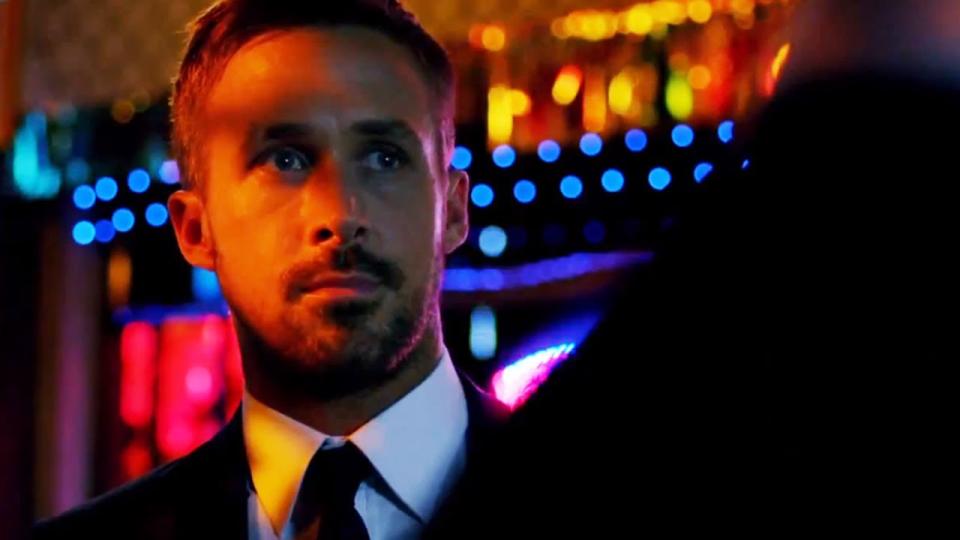
It was very revolutionary and I remember actually after the premiere when there was a lot of electricity in the air. Cliff Martinez, the composer of the music who I do a lot of work with, he turned to me and said, “Well, you’re now the Sex Pistols of cinema” and that was the best compliment I got all year because they certainly set a lot of controversy in motion. I think that’s so much what young people crave nowadays: authentic attitude, because so much is fabricated for commerce.
We need to talk about why we produce content. We produce content as a business, but we speak so rarely about why are we making content: what’s the meaning of it? That whole notion of what a film is and what it’s not and how a script should be written, or style over substance or whatever these silly theories, it’s an absurd approach.
“Only God Forgives” star Ryan Gosling recently said in a GQ cover story that he is kind of done making indie films and is focusing more on blockbusters to provide for his family. Would you ever take on a blockbuster or an iconic IP, like Greta Gerwig’s “Barbie”?
It’s different from being an actor to being a creator. It’s a different machinery. I completely understand what he’s saying and I think he’s got a very good point, a very strong point. I have a family too. I understand.
As for something like the “Barbie” movie, I don’t know. Stranger things have probably happened. I never had things I don’t want to do. It’s just more, what am I interested in? I like my freedom, first and foremost. So maybe I would then create my own IP instead of sharing somebody else’s. But again, maybe I’ll come across something larger and it all makes sense. I’m not a politician in that sense. I wake up every morning trying to make the day the most interesting. I don’t really have any kind of plan other than just being free as much as I can be.
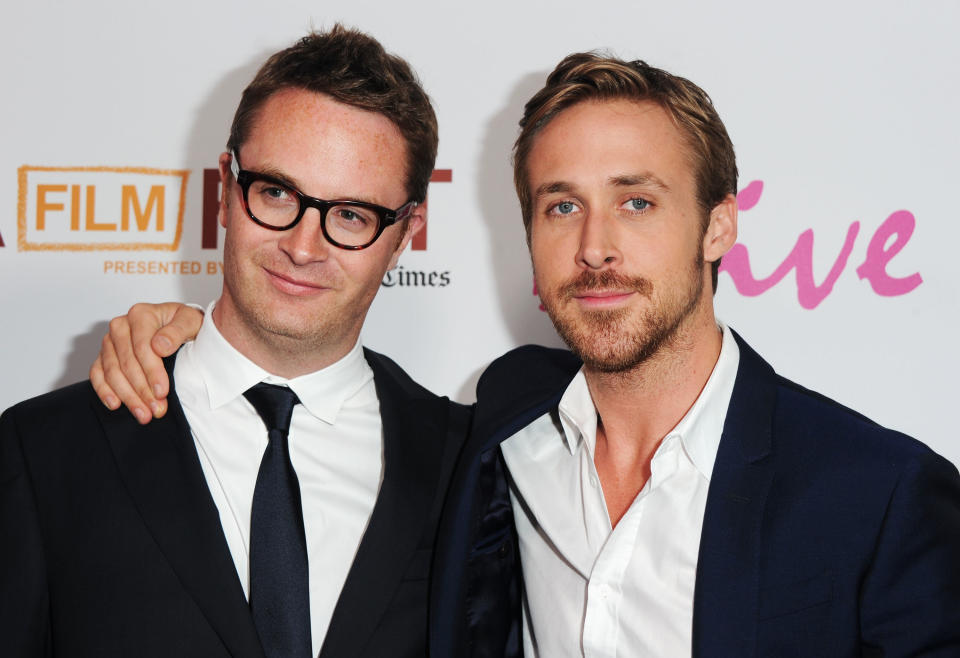
Are you looking to collaborate with Ryan Gosling again in some capacity? Or have your paths kind of diverged at this point?
Oh, no, no, we always talk about when we’re going to do something. It’s like a common theme in our relationship, “When are we going to get back together?”
Lastly, I know that you had told William Friedkin that you had no regrets about “Only God Forgives” and that you viewed it as a “masterpiece.” Would you still agree with that statement?
Well, you know, it’s always fun to light a little fire under Billy Friedkin when he takes himself too seriously.
Best of IndieWire
Christopher Nolan Movies, Ranked from 'The Dark Knight' and 'Tenet' to 'Dunkirk' and 'Oppenheimer'
Where to Watch This Week's New Movies, from 'Barbie' to 'Oppenheimer'
The Best Sex Scenes of the 21st Century: 'Beau Is Afraid,' 'Call Me By Your Name,' and More
Sign up for Indiewire's Newsletter. For the latest news, follow us on Facebook, Twitter, and Instagram.

